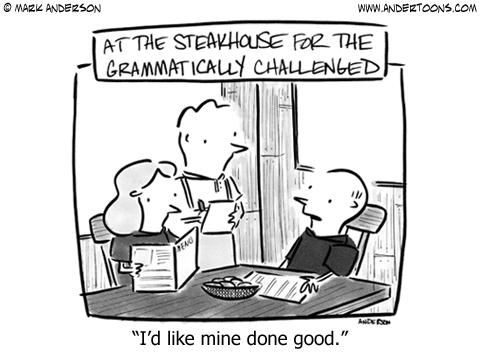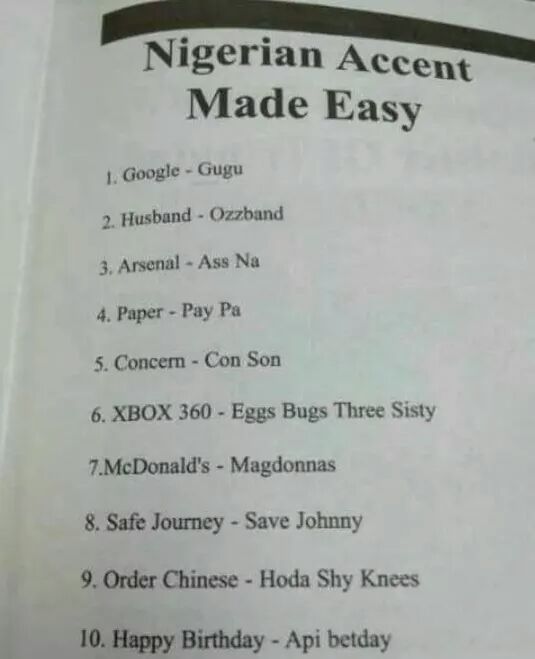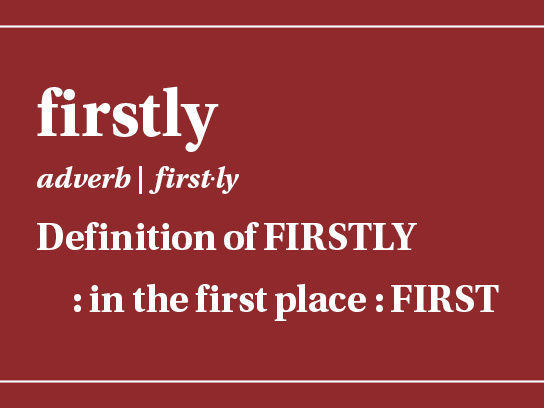Tag: Language
10 Words That Aren’t Words But They Actually Are
These are all words but if you use them you’ll have to politely correct them.
1. Firstly
First things first: Why would anyone still say firstly instead of first? Ordinal numbers such as first, second, and third serve as both adjectives and adverbs, making the adverbs firstly, secondly, and thirdly redundant. Most grammarians agree with Garner’s Modern American Usage: “Firstly is considered inferior to first.” But it is a word that people use, even if the best example given in the Merriam-Webster Dictionary—”Firstly, gather all the ingredients together”—sounds a bit awkward.
2. Irregardless
Merriam-Webster says “the most frequently repeated remark about irregardless is that ‘there is no such word.’ There is such a word, however.” It has been used (mistakenly) in place of regardless since the early 1900s and has now been admitted into dictionaries. So even though it is a word, irregardless is still far from being widely accepted. And judging by the scorn it receives online, it won’t be widely accepted anytime soon. Merriam-Webster’s advice: “Use regardless instead.”
3. Prolly
Prolly is taking over for probably in text messages, but its origin goes back much earlier: to the 1940s. Considered a “relaxed pronunciation contraction” (like gonna and outta), prolly even shows up in the Oxford English Dictionary. But you should definitely only use prolly informally, as in: “U prolly don’t like that I said prolly when u asked me to marry u.”
4. Literally
How long does it take for a word to be used incorrectly before linguists give up and alter its meaning? It’s happening to literally, which literally means “in a literal way or sense.” So many speakers are using it in place of virtually that the Oxford English Dictionary has redefined literally to say it can be “used for emphasis rather than being actually true, such as, ‘We were literally killing ourselves laughing.’” Meanwhile, English is left with no word reserved to mean “in a literal sense.” Result: Language purists refuse to use literally figuratively.
5. Funner
If a tough day can get tougher, and weird house guests can get weirder, why can’t a fun drink get funner after they’re gone? Actually, it can. Merriam-Webster states that funner and funnest are “sometimes” permissible. Although fun has long been accepted as a noun, it is considered informal when used as an adjective, and therefore, some people claim, it shouldn’t be inflected like other adjectives, but those people are no fun.
6. Anyways
Dating back to the 13th century, anyways was gradually shortened to anyway. Today, it’s only used colloquially, as in: “I’ve been blabbing about myself for hours. Anyways, why are you leaving?” The word is considered superfluous: Most dictionaries list it as an informal synonym for anyway. The Oxford English Dictionary goes a step further. It identifies anyways as being of North American origin and gives this snobbish example: “You wouldn’t understand all them long words anyways.”
7. Orientate
Like irregardless and anyways, orientate can be used but shouldn’t. The word originated in British English in the 1840s as a variant of orient (both mean “to determine bearings”). Yanks stuck with orient, which is still the preferred usage—orientate is considered nonstandard in most American dictionaries. Even so, many people use it interchangeably with orient (and disorientated for disoriented). A Collins Dictionary entry reads, “We’ve taken so many turns I’m completely disorientated.”
8. Snuck
The past tense of sneak is sneaked, so why have people stuck with snuck since the 1800s? It’s a mystery; no English verb that ends in the -eek sound has a past tense ending in -uck. But dictionaries have adopted the made-up word. Random House Dictionary explains, “Snuck has occasionally been considered nonstandard, but it is so widely used by professional writers and educated speakers that it can no longer be so regarded.” In response, grammarian James J. Kilpatrick lamented that Random House‘s “tolerant view has not snuck up on me; it has sneaked up on me. I will have none of it.”
9. Madded
Word snobs may get mad if you say madded, but it is in fact a verb. Merriam-Webster gives this example: “Her endless excuses for not doing the work madded her overburdened coworkers.” Less cringeworthy, and also recognized by dictionaries, is the adjective maddish. For example, when Uncle John gets sent to Acapulco in the dead of winter for a “business trip,” we’re happy for him but also maddish.
10. Impactful
Impactful was invented by advertising agencies in the 1960s to describe their campaigns as “having a big impact.” (These are the same “mad men” who coined lite and signage.) All three words are detested by grammarians; impactful even made it onto Harvard Business Review blogger Bryan A. Garner’s list of “65 Forbidden Buzzwords.” But it’s now in the dictionary, so it’s a word.
Anyways, we hope you found our list of despised words to be impactful. We’d literally die if you didn’t.
Where Did English Come From?
Yale faculty member Claire Bowern explains the evolution of the English language in this animated TED-Ed video.
Enjoy!
When we talk about ‘English’, we often think of it as a single language. But what do the dialects spoken in dozens of countries around the world have in common with each other, or with the writings of Chaucer? Claire Bowern traces the language from the present day back to its ancient roots, showing how English has evolved through generations of speakers.



